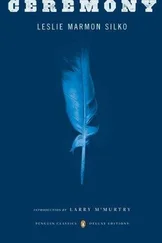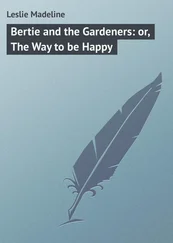The odors of the food were sublime but he could find no wine or water or coffee anywhere on the great table; now his hunger was exceeded only by his thirst. The snow out the windows looked so inviting! He would gladly forgo the tables of luscious food for a handful of snow, and looked for another door out of the room; but the only door led back to the smaller dining room. He would have to smash the bay window and find a rope or way to let himself down to the ground some twenty feet below.
He kicked the glass and was shocked to see the fragments splash and rain down like water; he tore loose a thick green velvet panel of drapery and tied it to the window frame before he let himself down to the ground. It was freezing cold outside but the stony ground was dry; he could find no snow, and he could not control the shivering.
The last he remembered was the animated voices in a heated discussion louder than the drumming he heard; they talked about him. The Africans and the Indians — all his ancestors argued whether they should bring him home or let him stay longer. He didn’t remember his ancestors or care about their feelings; yes, he was a good boy and loved his mama, but once a grown man he wasn’t worth a damn except for moneymaking. He didn’t remember the ancestors with even one drop of liquor or even corn pollen or a plug of tobacco. He abandoned the little grandfather, his son, to chase after money. That’s how he got himself in this predicament in the first place — so crazy over the money he didn’t carry enough water. Any human that weak might as well be dead.
Candy was saddened at the unfairness of the spirits, who seemed not to know that these days money was necessary to buy one’s freedom day after day. Part of the stolen money belonged to Sister Salt; he always intended to return it to her. He was the one who assured her the safe was better than a hole in the ground. His eyes would not open anymore, and he could hardly swallow; but he spoke to them silently: If it was too late to save him, what were they arguing over? He had almost crossed over and was relieved to be finished — life was certainly more difficult than death. The voices ignored him; maybe he wasn’t as far gone as he hoped.
No one was going to come along with water in time to save him — with the last of his strength he pulled the shotgun up beside his face. Now the drumming was so loud it deafened him and he no longer heard the voices; he felt the gusts of wind grow stronger until tiny pebbles stung his face and hands.
At first he feared the odor of rain in the wind was another hallucination, but a crash of lightning and thunder shook the ground beneath him.
He drank and drank, then tore a rag from his shirt for a wet compress on his eyes; it seemed like he slept for days before he drank enough water to need to urinate. After the storm passed, the sun came out and warmed him. He drank but oddly he wasn’t hungry; he recalled the strange mountain dining hall tables of food without any desire for it. Instead he lay on his belly, his back to the sun for hours as he looked into the clear shallow pool of rainwater that collected on the flat stones. How magical water was — shifting its form endlessly, embracing the sunlight with little rainbows above its surface.
He was grateful his kidneys weren’t damaged by the long thirst. During his army years he heard stories of agonizing death — burns, impalement, and poisons — but dying of thirst in the desert haunted all the troops. Now he had to agree; he got so weak toward the end he couldn’t even lift the shotgun or pull its trigger. Gradually he regained his strength; when he pulled himself up to lean against a boulder, his denim pants slipped down around his knees. He looked down at himself and realized the past weeks and then these last days had whittled him away; he felt himself and found only skin and bones.
He was dozing when the odor of horseshit woke him; when he pulled the damp rag from his eyes he saw blurred blue outlines but there was no mistaking the rifles; he was surrounded by soldiers. They had orders to find a black soldier AWOL from Fort Huachuca. Candy told them his name and where he came from; the sergeant listened but was not convinced. They’d tracked him from Tonopah after reports a black man stopped there. Candy pointed out he was too old to be the man they sought, but they handcuffed and loaded him onto a mule anyway.
He asked for food and they gave him hardtack — as much as he wanted; the flat hard biscuits tasted far better than he remembered from his army days. Later when they camped for the night, they brought fried salt pork, but after a few mouthfuls he felt his stomach turn, and he was able to finish only the hardtack and boiled coffee. They took the long way around; all the way to Tucson he tried to eat the fried salt pork they offered him, but the mountain ordeal weakened his stomach, and all he could tolerate was hardtack and flapjacks.
♦ ♦ ♦
Indigo marked a dot in her notebook for each day that passed after Hattie left, but even when there were forty-six dots, there was no sign of Hattie. Sister Salt stole a peek over her shoulder and realized she was counting days until the white woman returned. Didn’t Indigo remember how white people came, claimed they’d stay, but then later they were gone?
Sister hoped the woman never came back; yes, she was kind to Indigo and generous to all of them. But Sister felt uneasy whenever the woman came around; she knew the woman thought about taking Indigo away for good — she could tell by the expression in Hattie’s eyes whenever she looked at Indigo.
Before she left on the mail wagon, Hattie promised Indigo to write in care of the trading post if she was delayed. Indigo wanted to see if there was a letter. The weather was changing; it was overcast and windy that morning, and Sister didn’t want to take the baby out in the dust. But Maytha and Vedna came along with Indigo to buy more sugar to make beer.
The trader’s wife barely skimmed the surface of the bushel basket where mail for the Indians was kept, but said Indigo had no mail. Indigo knew Hattie preferred small fancy sheets of paper with small matching envelopes, which might easily slip to the bottom of the basket. Indigo stayed put in front of the counter, and after a while the trader himself asked if there was something else she wanted.
“I know she was going to write,” Indigo said.
“Oh. Her,” the trader said and shook his head. He looked at Maytha and Vedna, who held sacks of sugar, waiting patiently for Indigo.
“Someone better tell the girl. Those society women come out from back east, interfere, and then they leave and never write.” He turned his back to them and shoved the basket of mail back in its corner. Indigo’s heart pounded so loudly she hardly noticed Maytha’s hand around hers; she didn’t cry until they stepped out into the dust and grit driven by the cold gusts of wind.
When the girls returned from the trading post, Sister saw streaks down Indigo’s cheeks, where fine dust stuck to the tears. Despite the monkey’s somersaults and the parrot’s screeches to be let out, Indigo went straight to her bed. Sister was so angry at that white woman tears filled her eyes, and she could not stop herself.
“She’s not coming back!” Sister used a loud whisper not to disturb the little grandfather’s nap. Both twins nodded solemnly at Indigo.
“She’s really nice—”
“She’s really generous, too,” Vedna interrupted.
“But the thing is, Indigo—”
“She wasn’t lying —”
“No! She means well, poor thing.”
Sister Salt angrily shook her head. Maytha and Vedna hurriedly wrapped themselves in their shawls and took the axes to go cut kindling above the riverbank while the sisters worked things out. They were expecting guests later that evening and the twins didn’t want the party spoiled with arguments or tears from Sand Lizard girls.
Читать дальше












